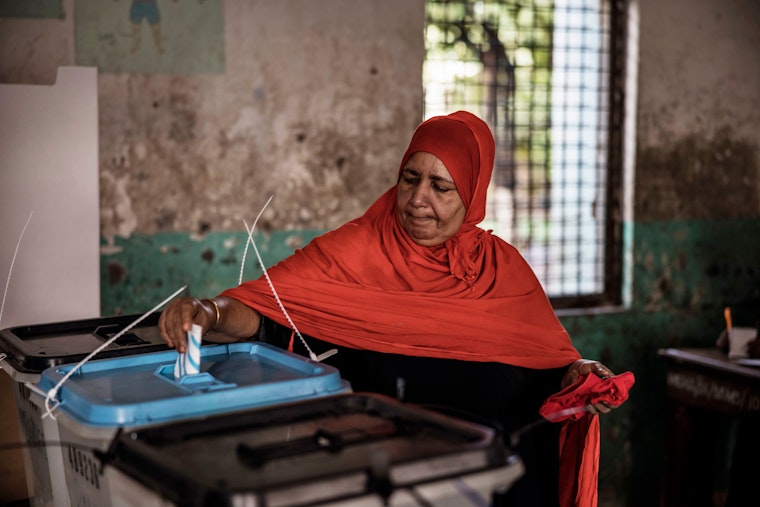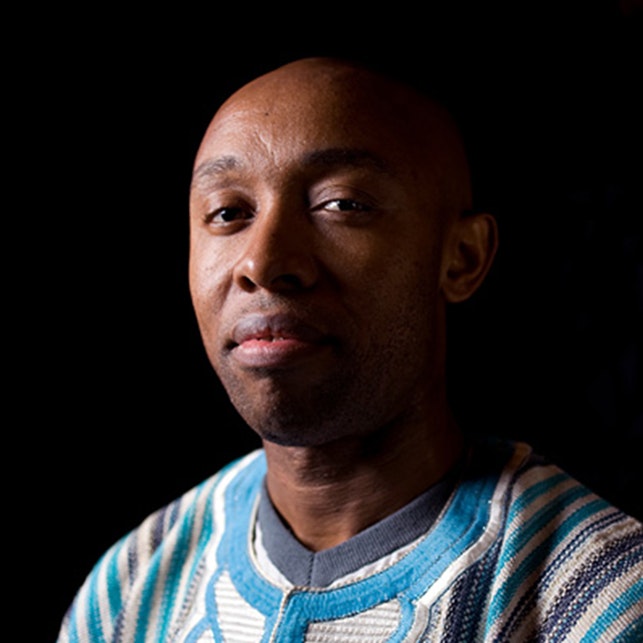This African Court Decision Could Curb Electoral Abuse during COVID-19
By Chidi Odinkalu

This July, South Africa’s electoral commission announced that they would postpone October’s local elections after an inquiry recommended that the elections would not be “free or fair” if undertaken during the country’s latest wave of COVID-19 infections.
South Africa’s electoral commission reached this conclusion a mere week after the African Court on Human and Peoples’ Rights issued a groundbreaking decision that called on all Member States of the African Union, including South Africa, to guarantee transparent, free, and fair elections during the pandemic. The Open Society Justice Initiative acted as co-counsel in the case with the Pan African Lawyers Union (PALU).
The Court’s advisory opinion is the first of its kind from any major international court or tribunal at a time when COVID-19 has had a far-reaching effect on democratic participation and elections in Africa. Therefore, its significance is not to be underestimated or ignored.
South Africa is the latest among at least 78 countries globally forced to postpone elections because of COVID-19; 18 percent of those were in Africa. South Africa’s postponed elections are unlikely to be the last, despite some countries and local governments demonstrating that in-person voting can be both safe and possible. In South Africa’s case, however, the electoral commission managed the decision with independence and deliberation, which has mostly won the support of its people and their political parties. This has been far from the norm in other countries.
Since 2020, African countries have instituted different standards and practices in the management of elections during the pandemic. Most of these have proved controversial, due to the sense that incumbents in some countries used the pandemic as an excuse to pre-determine or postpone the outcome of elections.
The decision of the Ethiopia’s government to postpone June 2020 general elections ultimately saddled the country with a civil war. When Mali’s government was perceived as having used COVID-19 as cover to manipulate parliamentary elections in March 2020, the result was a popular uprising that culminated in the overthrow of constitutional government. In between the Mali and Ethiopia crises, the president of Burundi, Pierre Nkurunziza, secured a presidential win for his ruling party in elections manipulated under the shadow of COVID-19. Having frequently played down the threat during the campaigns, his unexpected death shortly thereafter from what many suspect was COVID-19 threw the country into a succession crisis.
Given these widespread experiences, the African Court’s decision lays out authoritatively what incumbents can and cannot do in the name of the pandemic for the sake of keeping power. In their submission to the Court, PALU and the Justice Initiative asserted that although the conduct of elections is essentially a matter for individual African states, the way they are organized engages international obligations, because elections involve the exercise of human rights guaranteed in regional treaties, including the African Charter on Human and Peoples’ Rights. Elections can also determine national stability and affect regional peace and security.
Critically, the Court found that when a country decides to hold elections during the pandemic, it must undertake “appropriate measures” to prevent transmission of COVID-19, without undermining “the integrity of the electoral process.” What does this mean in practice? The court laid out what should not be permitted during the election period, including restrictions on:
- Campaigning,
- Fair and equitable access to state-controlled media,
- Monitoring of the electoral process by candidates,
- Political parties and the competent voter registration public institutions,
- Election observation by domestic and international observers,
- The integrity of secret ballot,
- Participation in the process of vote counting and publication of the election results by political parties, candidates, and any other relevant actors for the transparency of the elections, and
- The possibility of contesting the results before the competent administrative and judicial bodies, if appropriate.
To be lawful, the Court observed, restrictions must meet five main conditions, namely: they must pursue a legitimate aim; be embodied in law that applies to everyone; proportionate; compatible with the essential content of the right to participation; and must not constitute a form of discrimination. Explaining the requirement of proportionality, the Court cautioned that any restrictions must be necessary in a democratic society, have a clear sunset (cannot be indefinite), and must be “surrounded by safeguards so as to avoid their abusive application.”
The week after the African Court’s decision was issued, a political controversy exploded in Kenya over whether or not it authorized the postponement of that country’s general elections due to hold in 2022, with senior politicians offering diverse opinions on the implications of the decision.
Senegal’s local elections have been postponed repeatedly since 2019. In The Gambia, where 2021 began with the postponement of voter registration, there is no assurance that the presidential election scheduled for 4 December, 2021 will be held on the due date. In these, and all the 16 elections scheduled to take place around Africa in 2022, the African Court’s advisory opinion could become a major factor in shaping how parties and governments design safeguards to guarantee effective citizen participation and credible elections despite the pandemic.

Until November 2021, Chidi Odinkalu was senior managing legal officer for the Africa Program of the Open Society Justice Initiative.